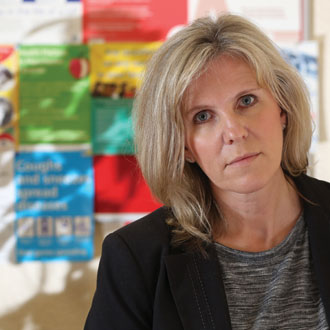Introducing weekend and evening opening hours in general practice will be harmful to patients, GPs at the Pulse Live event in Manchester said today.
Following the Big Debate at the conference this morning, headlined ‘Access: is it harmful?’, the majority of delegates concluded that the funding for extending access could be better spent on other services, while local leaders expressed concern that pilots will not be able to reduce demand on secondary care.
The Government has made moves towards extended access, including providing £50m central funding to GP practices across England.
But this vote follows similar expressions of disapproval from the profession, including a Pulse survey earlier this year – which found that 58% of GPs said it will harm patient care – and the LMCs conference, which voted against extending access, even if it were properly resourced.
Speaking against increased access, Manchester LMC honorary secretary Dr Tracey Vell argued that the Greater Manchester seven-day access scheme – previously reported on by Pulse – was not a good use of resource.
She said: ‘In Manchester there is extended access 6pm-8pm every night at a remote practice, it is not held at your own practice and it is with a GP who is not your GP. It also occurs three hours on the weekend on Saturday and Sunday. This costs almost £500,000 for six months.’
‘The access is for a pre-booked, routine appointment with a GP. This means they don’t have access to any investigation, but they do have access to your notes, which you give consent to merely by arriving there at your pre-booked appointment.’
She said there were already services that are aimed at reducing admissions.
Related stories
Majority of GPs say Government’s extended access strategy will harm patient safety
Analysis: PM pushes GP access to its limits
Pulse Live Manchester 2014: Follow Pulse’s live Twitter feed from the conference
Dr Vell added: ‘If GP access on remote sites away from the hospital could reduce visitors to A&E departments then walk-in centres and out-of-hours services surely would already have achieved it.’
‘In Manchester we spend on all three things at the same time: we spend on out of hours, we spend on extended access, and we also nationally spend on NHS 111. A waste of money and resource when we are not looking at the questions of why people are visiting A&E.’
In favour, John Boyington, a lay non-executive director at a GP federation in Bury, which has provided seven-day access under the Greater Manchester scheme, said that there was already 6% fewer attendances with minor illness at the local A&E, according to figures for the first few months of the scheme.
He said that access should not be ‘designed to fit one-size-fits-all’.
Mr Boyington added: ‘At the moment, people access a range of services when they can’t access their GP in what they consider to be a timely manner. There is a debate about need versus want but we should put such a clear delineation because at the end of the day it is always the patient who develops the first view about whether they need a service.’
‘All that happens if you [restrict access] is people take their demand elsewhere.’
Meanwhile, Londonwide LMCs chief executive Dr Michelle Drage said she was ‘on the fence’, but added: ‘If you did have the resources and you were able to provide a service where patients have coordinated care as they go through the service, then of course access to that level of service would be great – [but] the reality is we don’t have them.’
Pulse October survey
Take our July 2025 survey to potentially win £1.000 worth of tokens














